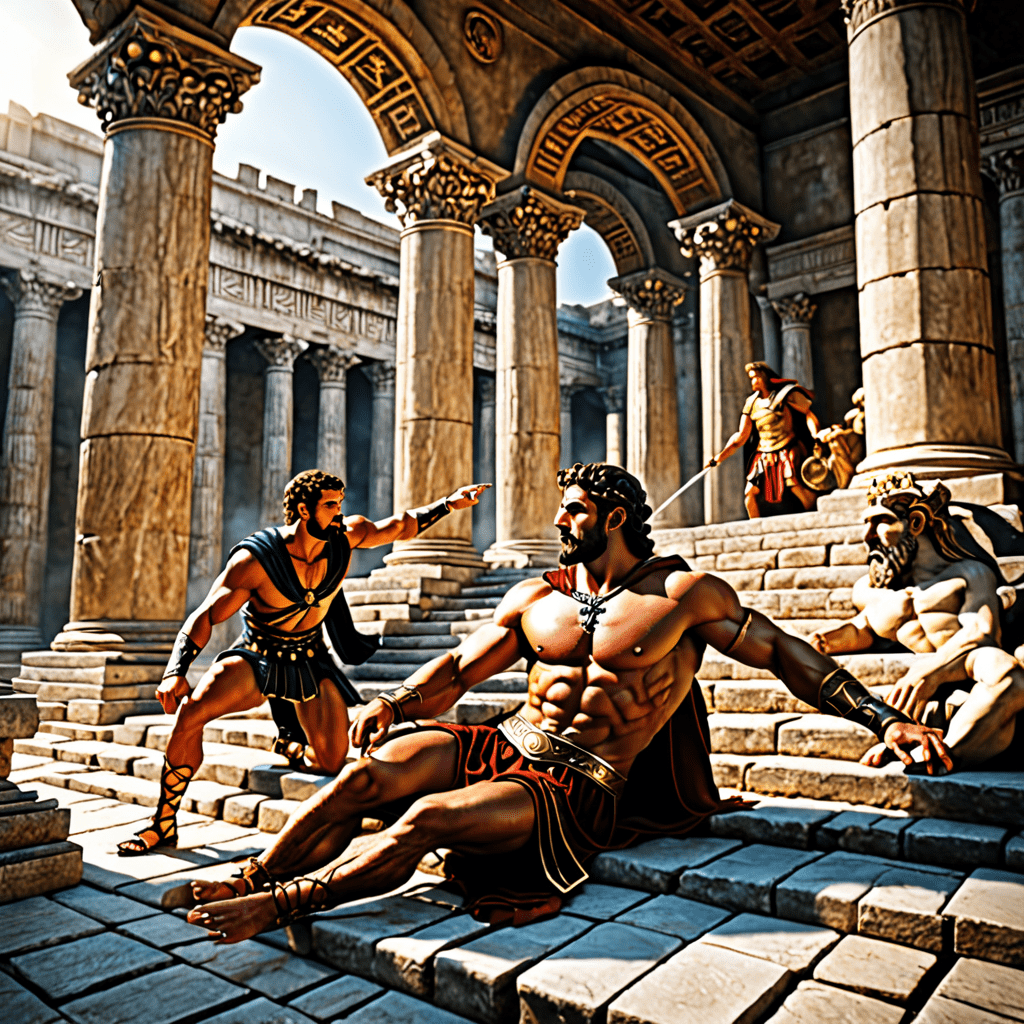Exploring the Concept of Risk and Reward in Roman Mythology
In Roman mythology, a rich tapestry of stories and legends existed, each characterizing the interplay of risk and reward. Let’s delve into the intriguing world of Roman mythology where gods, heroes, and mortals ventured into daring situations seeking remarkable rewards while navigating treacherous risks.
The Divine Risks and Rewards
At the core of Roman mythology are the powerful gods and goddesses who themselves were not immune to risks. Take, for example, the tale of Jupiter, the king of gods, who faced the risk of rebellion from his own offspring. Despite the dangers, the rewards of maintaining power and order in the heavens drove Jupiter to take decisive actions.
Moving to the mortals, consider the story of Aeneas, a Trojan hero in Roman mythology. Aeneas took a monumental risk by leaving his homeland and embarking on a challenging journey to fulfill his destiny. His reward? The establishment of the Roman race, laying the foundation for the mighty city of Rome.
The Heroes’ Trials and Triumphs
Heroes in Roman mythology such as Hercules and Perseus exemplify the concept of embarking on perilous quests in pursuit of extraordinary rewards. Hercules undertook twelve labors – each fraught with danger – to cleanse his sins and achieve immortality. His unwavering resolve in facing risks brought him incomparable glory and reverence.
Just as Hercules faced immense challenges, Perseus risked his life to slay the dreaded Gorgon, Medusa. The reward for his courage and bravery was the admiration of both mortals and gods, solidifying his status as a legendary hero in Roman mythos.
Moral Lessons and Contemporary Parallels
Behind these captivating tales lie profound moral lessons that resonate even today. Roman mythology teaches us about the inevitability of risks in the pursuit of rewards, the necessity of persistence in the face of adversity, and the importance of courage and honor.
Reflecting on these myths, one can draw parallels to contemporary life where taking calculated risks often leads to the most significant rewards. Just as the heroes and gods in Roman mythology navigated challenges, we, too, can harness their resilience and courage to overcome obstacles in our own quests.
So, as we immerse ourselves in the timeless narratives of Roman mythology, let us remember the eternal dance of risk and reward that shapes not just ancient legends but also our own journeys through life.
FAQ About Exploring the Concept of Risk and Reward in Roman Mythology
What is the significance of risk and reward in Roman mythology?
In Roman mythology, the concept of risk and reward plays a crucial role in various tales and legends. It often reflects the idea that great feats or achievements come with inherent risks and opportunities for substantial rewards.
How do Roman myths illustrate the balance between risk and reward?
Roman myths showcase characters undertaking daring challenges or quests, facing uncertainties and dangers along the way. These narratives demonstrate how taking calculated risks can lead to both favorable outcomes and valuable lessons, highlighting the delicate balance between risk and reward.
Can you provide examples of risk and reward in Roman mythology?
Certainly. One notable example is the story of Aeneas, who risks his life to fulfill his destiny in founding the Roman civilization. Another example is the tale of Hercules, who undertakes perilous tasks to earn his place among the gods, showcasing the theme of risk and reward in Roman myths.



